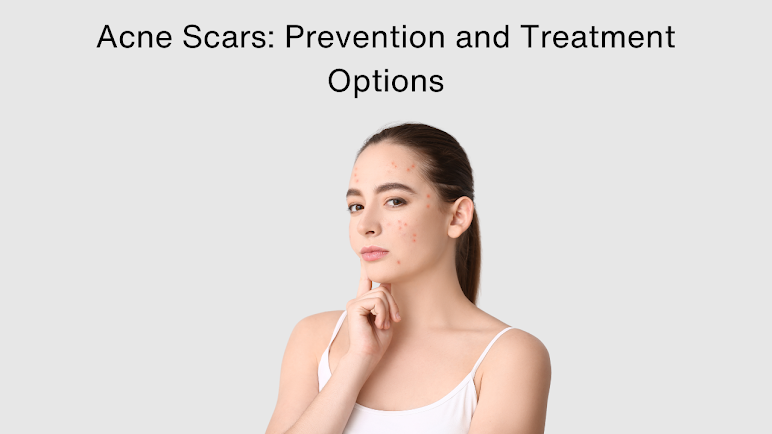Acne Scars: Prevention and Treatment Options

Welcome to the Gleuhr skin and dental clinic in Chandigarh and we provide best skin, hair and dental treatment in tricity and we also sell natural skin and hair products in all over world. We have best skin specialist in Chandigarh who are highly educated and dedicated to their work. https://clinic.gleuhr.com/

In the eternal quest for the elusive fountain of youth, one often overlooks a powerful ally that has been within our grasp all along – the simple act of getting a good night's sleep. While the pursuit of anti-aging remedies has led to an array of skincare products, treatments, and lifestyle changes, the fundamental importance of quality sleep cannot be overstated. In this exploration, we delve into the intricate connection between sleep and anti-aging, unraveling the physiological processes that make a restful night's sleep a potent weapon against the relentless march of time.
Before we delve into the impact of sleep on the aging process, it's essential to comprehend the basic mechanisms behind aging. Aging is a complex, multifaceted process influenced by genetic, environmental, and lifestyle factors. At the cellular level, aging manifests through a gradual decline in cellular function, increased oxidative stress, and a decrease in the body's ability to repair and regenerate cells. These processes collectively contribute to the appearance of wrinkles, fine lines, and a loss of skin elasticity.
The intricate interplay between sleep and aging is rooted in the body's intricate hormonal and cellular processes. Sleep is a dynamic state during which the body undergoes vital reparative functions, impacting both physical and mental well-being. When sleep is compromised or insufficient, these reparative processes are disrupted, setting the stage for accelerated aging.
During the deep stages of sleep, particularly in the REM (Rapid Eye Movement) phase, the body initiates crucial cellular repair and regeneration. This is the time when damaged cells are repaired, and the body works to replace worn-out tissues. Adequate sleep ensures that these reparative processes are carried out optimally, promoting overall cellular health and longevity.
Sleep plays a pivotal role in maintaining a delicate balance of hormones, including growth hormone and cortisol. Growth hormone, often referred to as the "youth hormone," is released during deep sleep, stimulating tissue repair, muscle growth, and the production of collagen – a key component for maintaining skin elasticity. On the flip side, inadequate sleep can lead to elevated cortisol levels, triggering inflammation and collagen breakdown, ultimately accelerating the aging process.
Oxidative stress, caused by an imbalance between free radicals and antioxidants in the body, is a major contributor to aging. Quality sleep serves as a natural antioxidant defense mechanism, helping to neutralize free radicals and reduce oxidative stress. Chronic sleep deprivation, on the other hand, can result in a buildup of free radicals, leading to accelerated aging and an increased susceptibility to various age-related diseases.
Chronic inflammation is a hallmark of aging and is closely linked to various age-related conditions, including cardiovascular disease and neurodegenerative disorders. Sleep plays a crucial role in modulating inflammation, with proper rest promoting an anti-inflammatory environment. Conversely, insufficient sleep can lead to heightened inflammation, compromising the immune system and contributing to premature aging.
Establishing a regular sleep routine is essential for maximizing the anti-aging benefits of sleep. Aim for a consistent sleep schedule, going to bed and waking up at the same time each day, even on weekends.
Engage in calming activities before bedtime to signal to your body that it's time to wind down. This can include reading, gentle stretching, or practicing relaxation techniques such as deep breathing or meditation.
Create a sleep-friendly environment by keeping the bedroom dark, quiet, and cool. Invest in a comfortable mattress and pillows to enhance sleep quality.
Minimize caffeine intake, especially in the hours leading up to bedtime, and reduce exposure to screens emitting blue light. The latter can interfere with the production of melatonin, a hormone crucial for sleep regulation.
Engaging in regular physical activity has been linked to improved sleep quality. Aim for at least 30 minutes of moderate exercise most days of the week, but avoid intense workouts close to bedtime.
In the pursuit of the fountain of youth, it's crucial to recognize that sleep is not merely a passive state of rest but a dynamic process essential for maintaining overall health and combating the aging process. By understanding the intricate relationship between sleep and anti-aging, individuals can empower themselves to make informed lifestyle choices that prioritize restful sleep. As we unlock the secrets to the profound impact of sleep on cellular repair, hormonal balance, and oxidative stress, the path to a more youthful and vibrant existence becomes clearer than ever – and it begins with a good night's sleep.
Comments
Post a Comment